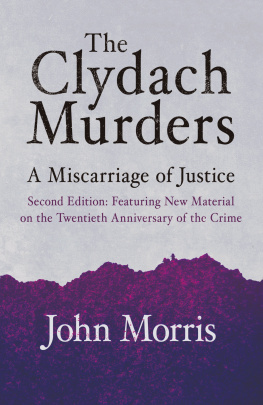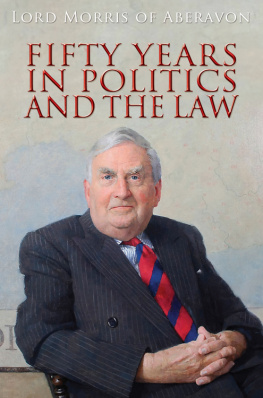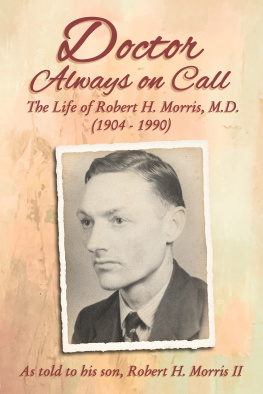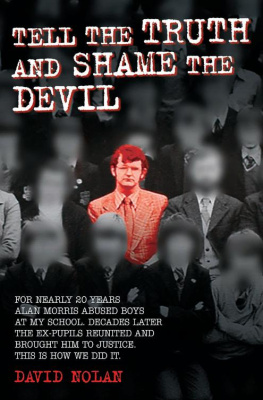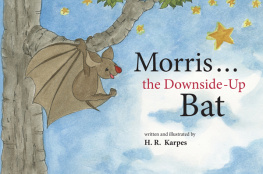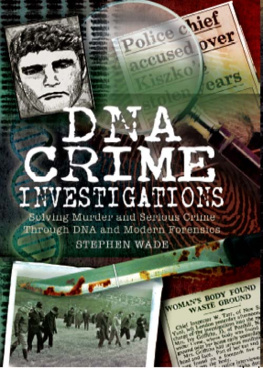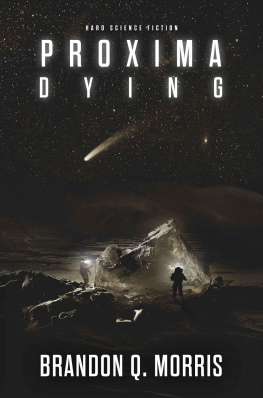
Seren is the book imprint of
Poetry Wales Press Ltd
Nolton Street, Bridgend, Wales
www.serenbooks.com
facebook.com/SerenBooks
Twitter: @SerenBooks
John Morris, 2019.
First published in 2017.
The right of John Morris to be identified as the Author of this Work has been asserted in accordance with the Copyright, Designs and Patents Act, 1988.
ISBN 978-1-78172-529-0
Ebook 978-1-78172-530-6
Kindle 978-1-78172-531-3
A CIP record for this title is available from the British Library
All rights reserved. No part of this publication may be reproduced, stored in a retrieval system, or transmitted at any time or by any means electronic, mechanical, photocopying, recording or otherwise without the prior permission of the copyright holders.
The publisher works with the financial assistance of the Welsh Books Council
Maps OpenStreetMap contributors
openstreetmap.org
Printed in Plantin Light by Bell & Bain Ltd, Glasgow.
Contents
The house [at 9 Kelvin Road] was cleansed by one who was forensically aware.
Mr Justice Butterfield,
Swansea Crown Court, 24-27 June 2002
during the course of his summing up
It was a crime that shocked the nation. During the early hours of Sunday 27 June 1999, three generations of one family, all female, living together in the village of Clydach in the lower Swansea Valley, were killed in a series of vicious attacks. Two years later, Mr Justice Butterfield, presiding over the trial of David George (Dai) Morris, a builders labourer and known petty criminal, described the atrocity as a murder of exceptional savagery. Patrick Harrington QC, prosecuting counsel, described it as a massacre, and an orgy of savagery.
Divorced mother of two Mandy Power (aged 34), her disabled and bed-ridden mother, Doris Dawson (80), and Mandys daughters, Katie (10) and Emily (8), were brutally bludgeoned to death by a calculating assailant wielding a heavy four-foot fibreglass pole.
It was a killing on a scale previously unknown in Wales. It was the most horrific in regard to the violence inflicted on the victims; it resulted in the biggest murder investigation ever carried out by South Wales Police, involving over fifty detectives working full-time for almost three years; and it was by far the most expensive investigation in Wales up to that time, at a final cost of well over 6 million.
But despite the extensive publicity, the immense effort, the huge cost and time involved in bringing the case to trial, many consider that the truth of what really happened on that terrible Sunday morning has yet to be revealed. Moreover, justice may have miscarried and the man who was convicted of the murders might indeed be innocent. Neither his DNA nor his fingerprints could be found at the murder scene; the story told by the police was that he had wiped them all away. Furthermore, in order to destroy all potential remaining evidence, four fires were started in the house with the intention of razing it to the ground, thus obliterating all traces of the dreadful act.
However, owing to the presence of mind of a neighbour, that obliteration did not take place. Within minutes of smoke being seen rising from the back of 9 Kelvin Road, the emergency services were called. Morriston and Pontardawe Fire Services responded to what they assumed was an ordinary domestic fire, arriving at the now blazing house within just eight minutes of being alerted. Wearing breathing apparatus, firemen forced their way inside, even before the fire was brought fully under control, to search for anyone who might be trapped in the house.
One of the firemen, Neil MacPherson, brought out the first of the four occupants, ten-year-old Katie. She was laid on the ground where he tried to resuscitate her, but it was too late. Two more bodies were then brought out: another daughter, eight-year-old Emily, followed by the girls mother, Mandy Power. They too were dead. The body of an elderly woman, Doris Dawson, Mandy Powers mother, was found in her bed.
What horrified the firemen was that none of the victims had been killed by smoke, by the fire or by accident. All had died as a result of extreme violence. Number 9 Kelvin Road was a crime scene, the address of one of the most shocking murders ever committed in Wales.
Then began the biggest murder hunt in Welsh history, and what also may be the greatest miscarriage of justice in Wales. The events that followed this terrible tragedy culminated in what can only be described as a travesty of justice.
As the police investigation progressed, integrity and the rule of law gave way to a fierce determination on the part of South Wales Police to protect their own. It appears that they were anxious to find a suitable suspect, frame him, and obtain a conviction at any cost. In 2001, 21 months after the crime, the police charged builders labourer David George (Dai) Morris with the murders. Morris was convicted essentially on the basis of a single piece of evidence his broken gold neck-chain, partially covered in blood, which was found at the crime scene. His litany of lies, lack of an alibi for the night in question and his previous criminal record formed a case for the prosecution based more on speculation than on hard fact. In 2002 at the Swansea Crown Court he was found guilty of the murders, and at his second trial in 2006 at the Newport Crown Court, Morris was again found guilty of the murders, and sentenced to four terms of life imprisonment.
This is the story of an appalling crime and the flawed police investigation that followed. It is based mainly on first-hand reports from the South Wales Evening Post, which kindly opened its archives to me, and recollections of witnesses who gave evidence at the Swansea and Newport Crown Courts. It also includes the memories of people who were not called to give evidence at either of the trials, but nevertheless had something important to say. It is the account of a major injustice and what happens when one of the greatest legal systems in the world is manipulated by the unscrupulous, in order to achieve a court finding that is entirely inconsistent with the justice it seeks to deliver and endeavours to uphold.
The murders at 9 Kelvin Road and the flawed police investigation that followed

1. 9 Kelvin Road, Clydach home of Mandy Power and her family
2. Rhyddwen Road, Craig Cefn Parc home of Dai Morris and Mandy Jewell
3. New Inn Pub
4. West Crossways, Pontardawe home of Alison and Stephen Lewis
5. Morriston Police Station
6. Morriston Fire Station
7. Cockett Police Station
8. Coedwig Place, Gendros, Swansea home of Dai Morris parents
9. The White Chapel
10. Treboeth
Chapter 1
It was 12.30 a.m. on a warm but rainy summer night. A minibus taxi stopped on a neon-lit road in a quiet Welsh village. An attractive female passenger and two small girls got out and climbed the short flight of steps leading to the front door of an ordinary suburban semi. The driver watched as the woman turned the key in the lock before she and the girls slipped inside, closing the door behind them. Almost three years afterwards, recalling aloud his thoughts at that moment for the benefit of a jury, the taxi driver said: Theyre safe now.

